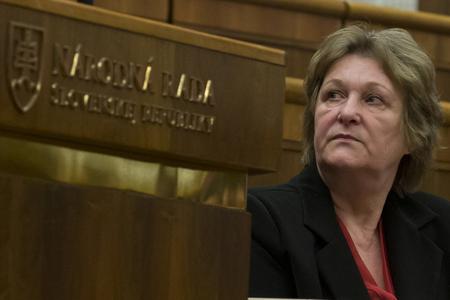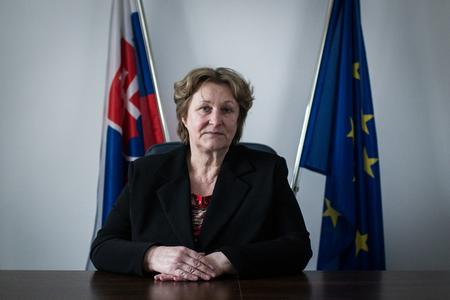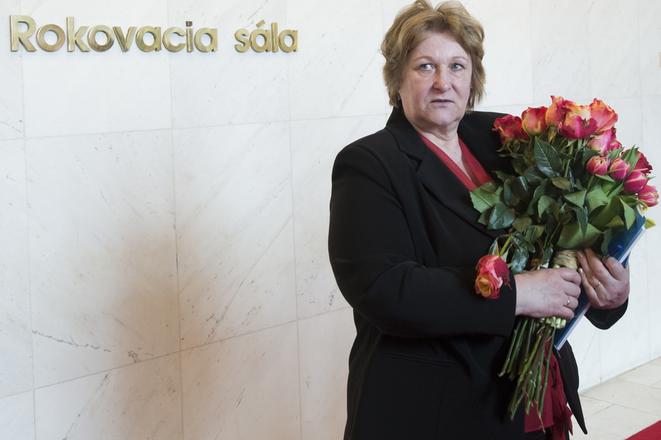Ombudswoman Jana Dubovcová delivered her last report to parliament on March 22. The pictures from the house show some five or six isolated MPs listening to her speech. The rest of the 150 seats are empty.

This, it seems, is how much we care about human rights in Slovakia. Over the five years that Dubovcová has held her post this has become an all too familiar sight: the woman, her report, and an empty parliament.
After her final speech, some opposition MPs wanted to present flowers to the departing ombudswoman, but Speaker Andrej Danko, pointing to the parliamentary rule changes he recently imposed, and in particular a new dress code and a ban on food in the house, ordered the flowers out of the room.
“I’m not sure now; does he consider flowers to be food or weapons?” commented MP Ondrej Dostál, who related the incident on Facebook.

In 2012, Dubovcová took over from her dormant predecessor, HZDS nominee Pavol Kandráč. Over her term she addressed a number of human rights concerns, some of which resonate within society to this day. She truly did try to stand up for the weak, the vulnerable, the victims of discrimination, who often go voiceless in the roar of everyday life.
While the responsible bodies in Slovakia might be reluctant to pay attention to her concerns, from time to time the world listens. Take the recent country report on human rights for 2016, issued annually by the US Department of State, which mentions not only the ever-present discrimination against Roma and the recent fashion for Islamophobic rhetoric by public officials, but also physical mistreatment of police detainees, the lack of independent oversight of the police, and the plight of children detained in educational rehabilitation centres enduring hunger and degrading treatment. All these issues were brought up by Dubovcová.
In its corruption and transparency section, the US report also pays attention to the Bašternák case. The scandal around Bašternák has been dragging on for a year and charges have finally been brought against the businessman. This development came just days before the Slovak media wrote about the American human rights report, which describes the events and links between Bašternák and Interior Minister Robert Kaliňák. While experts admit the charges might still be lifted without any proper clarification of the case, they show that the atmosphere is changing.
Scandals and suspicions of corruption are always guaranteed to fill seats in parliament, with politicians ready to debate day and night about guilt and punishment and political responsibility – although there is rarely much of those things in evidence once the rhetoric subsides.
But for now, as Mrs Dubovcová has discovered, there is scant political passion when it comes to abuses of human rights – that is, the rights of each and every one of us. To her credit, she never stopped trying to highlight these abuses, and demanding that MPs pay attention to them. Nor should we.



 Jana Dubovcová leaves parliament after her last report. (source: TASR)
Jana Dubovcová leaves parliament after her last report. (source: TASR)